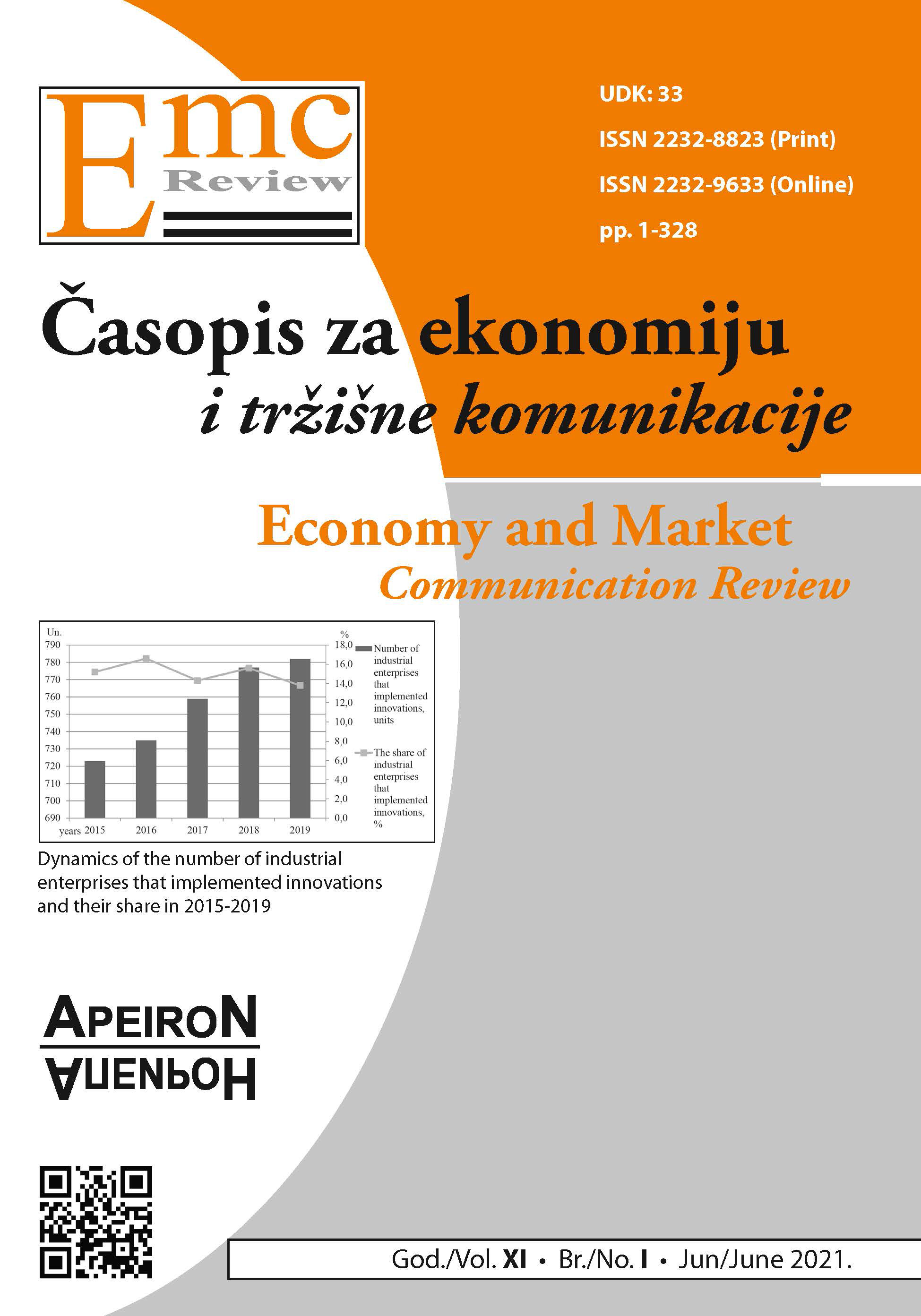THE CONTRIBUTION OF MIGRATION TO ECONOMIC GROWTH: THE EXAMPLE OF THE CITY OF ZAGREB
DOI:
https://doi.org/10.7251/EMC2101201MAbstract
The problems in this paper belong to the field of migration and economy. The connection between migration and the economy has been proven on a global level, and as far as the Republic of Croatia is concerned, it is especially important to observe it through the City of Zagreb, which is the most important migration and economic center in the Republic of Croatia. Also, the accession of the Republic of Croatia to the European Union emphasized the observation and research of this connection because it created the preconditions for freer movement and employment of the population of the Republic of Croatia and the City of Zagreb within the European Union. The aim of this paper is to determine the contribution of migration to the economic growth of the City of Zagreb. The hypothesis presented in the paper is that there is a significant contribution of migration to the economic growth of the City of Zagreb. The disposition of the paper consists of six parts. The introduction explains the relevance of the topic, states the aim of the paper and hypotheses, explains the empirical part, the contribution of the paper and the disposition. The second part of the paper refers to the theoretical framework of the impact of migration on economic growth. The third part of the paper presents the migration processes of the City of Zagreb in the period from 2011 to 2018. The fourth part deals with economic activity in the City of Zagreb in the period from 2011 to 2017. The observed indicators of economic activity in the City of Zagreb are GDP and GDP per capita, and the graph in this part of the paper shows that GDP and GDP per capita in the observed period are higher at the end of the period than at the beginning. The fifth part of the paper refers to the empirical research of the contribution of migration to the economic growth of the City of Zagreb. The empirical part of the paper is based on correlations and regression analyses. This paper proves the hypothesis because the results indicate a significant impact of the variables of total and external migration on the GDP of the City of Zagreb and GDP per capita of the City of Zagreb. Decision-makers in the City of Zagreb can use the results of the research as a basis for maximizing the economic benefits they can get from migration. The conclusion provides an overview of the aim of the work, the results of the research, the limitations, the implications and the recommendations for future research.
